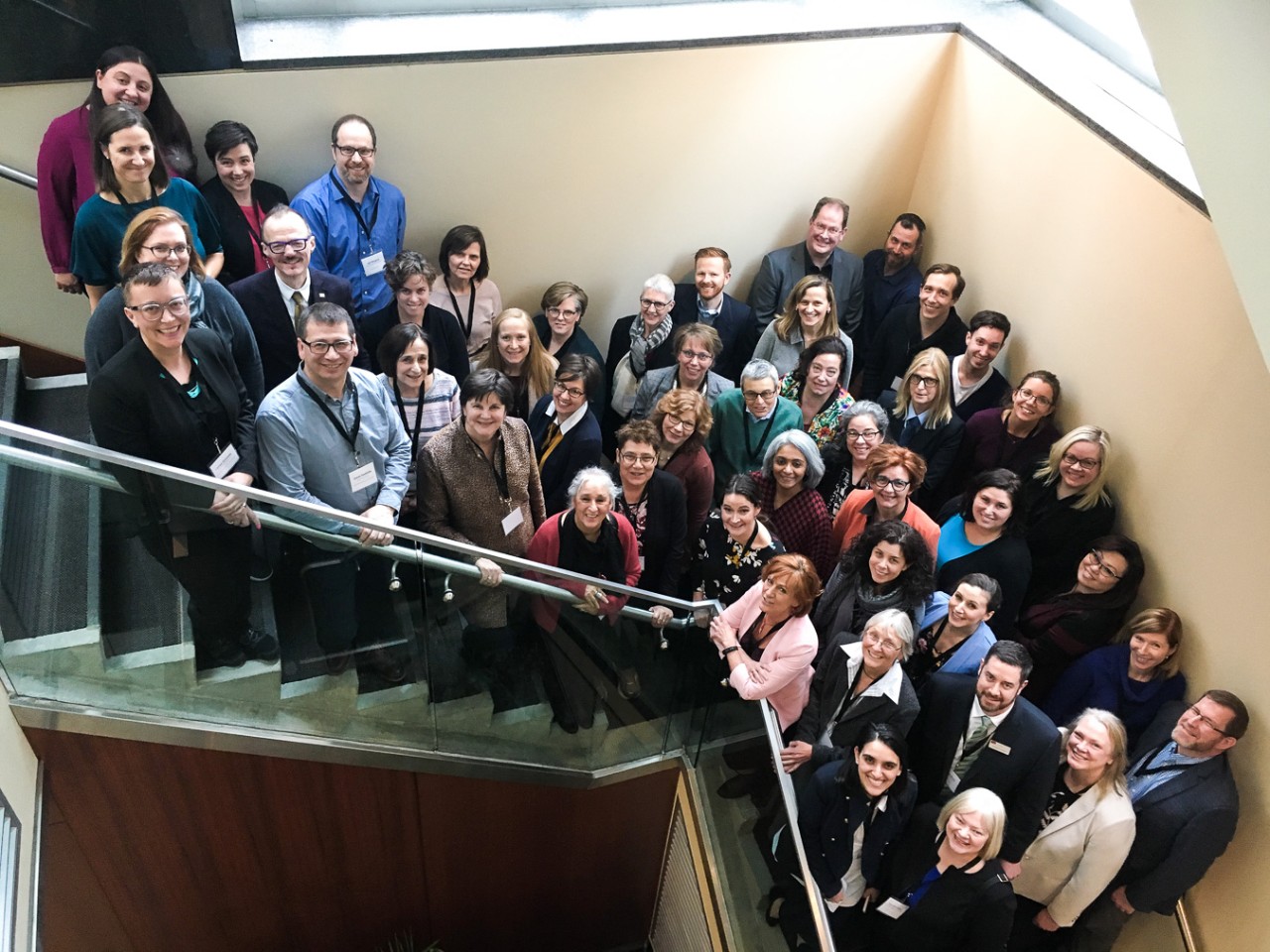
Launch of a Canadian Version of Carnegie Foundation’s Community Engagement Classification
Updated: July 2022
At UBC, we need to know more about how we engage with communities. Together with a cohort of 15 Canadian universities and colleges from across the country, UBC participated in a pilot of the Carnegie Foundation’s Community Engagement Classification (CEC).
In the initial phase of the pilot (June 2019 – June 2021), UBC completed an assessment of community engagement at our institution using the existing US-based Carnegie CEC. This was a rare opportunity to learn about our collaborations and partnerships with community and also take part in an important national conversation about the creation of a Canadian classification for community engagement.
In phase two of the pilot (June 2021 – June 2022), UBC continued to engage as a member of the Canadian Pilot Cohort (CPC) to consider how to adapt the US-based CEC to the Canadian post-secondary context. The CPC worked with the Carnegie Foundation to adapt the existing US-based tool to the Canadian context, design a governance framework for a Canadian national classification, develop a consultation and engagement plan for continuous improvement of the Canadian CEC, and plan for a Canadian community of practice for the classification.
The Carnegie Foundation and the CPC are now in the process of establishing a Canadian Carnegie CEC in January 2023. Prior to its launch in 2023, the Carnegie Foundation and CPC will select a Canadian host institution to oversee administration of the classification. The inaugural host institution will hold the post for a three-year term.
UBC’s involvement in the pilot directly supports Strategy 20 (Coordinated Engagement) in the UBC strategic plan, marking a key first step in our collective efforts to honour commitments and activities for community engagement.
News
- UBC submits Expression of Interest to become co-host of new Canadian classification for community engagementThe host of the inaugural Canadian Carnegie Community Engagement Classification will be responsible for providing the resources and leadership necessary to launch the new classification in Canada.
- UBC embarks on Canada-wide initiative to assess community engagementAdriaan de Jager, UBC’s Associate Vice President, Government Relations and Community Engagement, talks about UBC’s role in the Canadian pilot for the Carnegie Community Engagement Classification.
FAQs
What is the Carnegie Community Engagement Classification (CEC)?
The Carnegie CEC is the leading framework for institutional assessment and recognition of community engagement in U.S. higher education. For the past 13 years, it has asked US-based post-secondary institutions to focus on how higher education can facilitate and support community-engaged work.
It involves a rigorous process of collecting and documenting important information related to institutional mission, identity and commitments and is intended to support institutional learning and transformation, with a key focus on outcomes and impacts of community engagement work.
While classification is currently only available to U.S. institutions, the Canadian pilot is a unique opportunity for participating Canadian institutions to understand how such a tool is constructed and to inform the co-creation of a distinct Canadian framework.
Pilots have or are taking place in Ireland and in Australia.
What is the Canadian pilot and how will it work?
The Canadian pilot of the CEC is a multi-phase initiative that is focused on informing the co-creation of a Canadian framework for assessing and advancing community engagement at post-secondary institutions. By participating in this work together, the cohort has established a network of Canadian institutions that will continue to work together to adapt the Carnegie framework to the Canadian context and drive institutional change.
In phase one, each institution completed the existing Carnegie CEC application to understand its strengths and weaknesses in the Canadian context. Phase one is a test of the existing Carnegie process and cannot result in classification for Canadian institutions.
During phase one, UBC coordinated across campus to collect data and co-construct narratives about community engagement at UBC.
As of June 2021, the Canadian cohort entered into phase two of this collaborative multi-institutional project. In the next phase, the cohort will share key findings from phase 1 and adapt the CEC process to the Canadian context. As part of this work, the cohort will also establish a national community practice to continue broad dialogue about community engagement at Canadian post-secondary institutions.
What Canadian institutions are in the cohort?
The Canadian Pilot Cohort (CPC) is comprised of the following 16 post-secondary institutions:
- Assiniboine Community College
- Carleton University
- Kwantlen Polytechnic University
- Nova Scotia College of Art and Design
- McMaster University
- Mount Allison University
- Saskatchewan Indian institute of Technologies
- Simon Fraser University
- Université du Québec
- University of Alberta
- University of British Columbia
- University of Calgary
- University of Ottawa
- University of Windsor
- York University
- Yukon College
When will it happen?
Phase 1 (2019-2021)
Participating institutions completed the existing CEC tool:
- Jan 2019: Participated in initial convening
- Mar 2019–Nov 2020: Collected institutional data, prepared application for submission
- Dec 2020: Submitted application to the Carnegie Foundation
- Jan-Mar 2021: Carnegie Foundation reviewed Canadian cohort applications
- Spring 2021: UBC hosted virtual site visit by the Carnegie Foundation team
- May/June: Participated in 3-day closing convening, transitioned to Phase 2 of the pilot
Phase 2 (2021-2022)
- Jun 2021—Jan 2022:
- Canadian cohort shares key findings from phase 1, adapts Carnegie CEC process to Canadian context
- Cohort establishes Canadian community of practice for community engagement
- Jan 2022 (ongoing): Development of Canadian version of the Carnegie CEC; UBC performs assessment of community engagement activities
Phase 3 (TBD)
Canada adopts national CEC framework and invites Canadian post-secondary institution to complete assessment of community engagement activities and apply for community-engaged classification.
Who is involved?
UBC’s participation has been endorsed by President Ono, and is co-sponsored by the UBC Vancouver Vice-President Academic/Provost and the Vice-President External Relations.
The vice-presidents of Research & Innovation, Students, and Development and Alumni Engagement, and the Deputy Vice-Chancellor of UBC Okanagan have assigned representatives to participate in this initiative.
How does it support UBC’s strategic plan?
UBC’s involvement in the CEC directly supports Strategy 20 (Coordinated Engagement) in UBC’s Strategic Plan, Shaping UBC’s Next Century. By participating in the pilot, UBC will have started a systematic mapping of community engagement activities at the university, a key first step toward developing the “systems and processes that routinely assess institutional commitments and activities related to community engagement.”
The Canadian cohort has already identified that the Carnegie Engagement Classification does not reflect or recognize university engagement with Indigenous communities. The cohort has identified Indigenous engagement as an important part of any Canadian classification and will be consulting closely with Indigenous partners and knowledge keepers to develop a classification tool that reflects the partnerships and unique role of Indigenous communities at our institutions. From a UBC perspective, the Indigenous Strategic Plan will be an important input informing and shaping this work.

If you would like to know more, contact Ryan Brown, Advisor, UBC Community Engagement.

